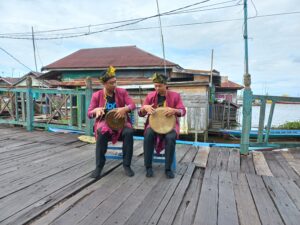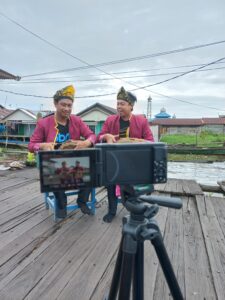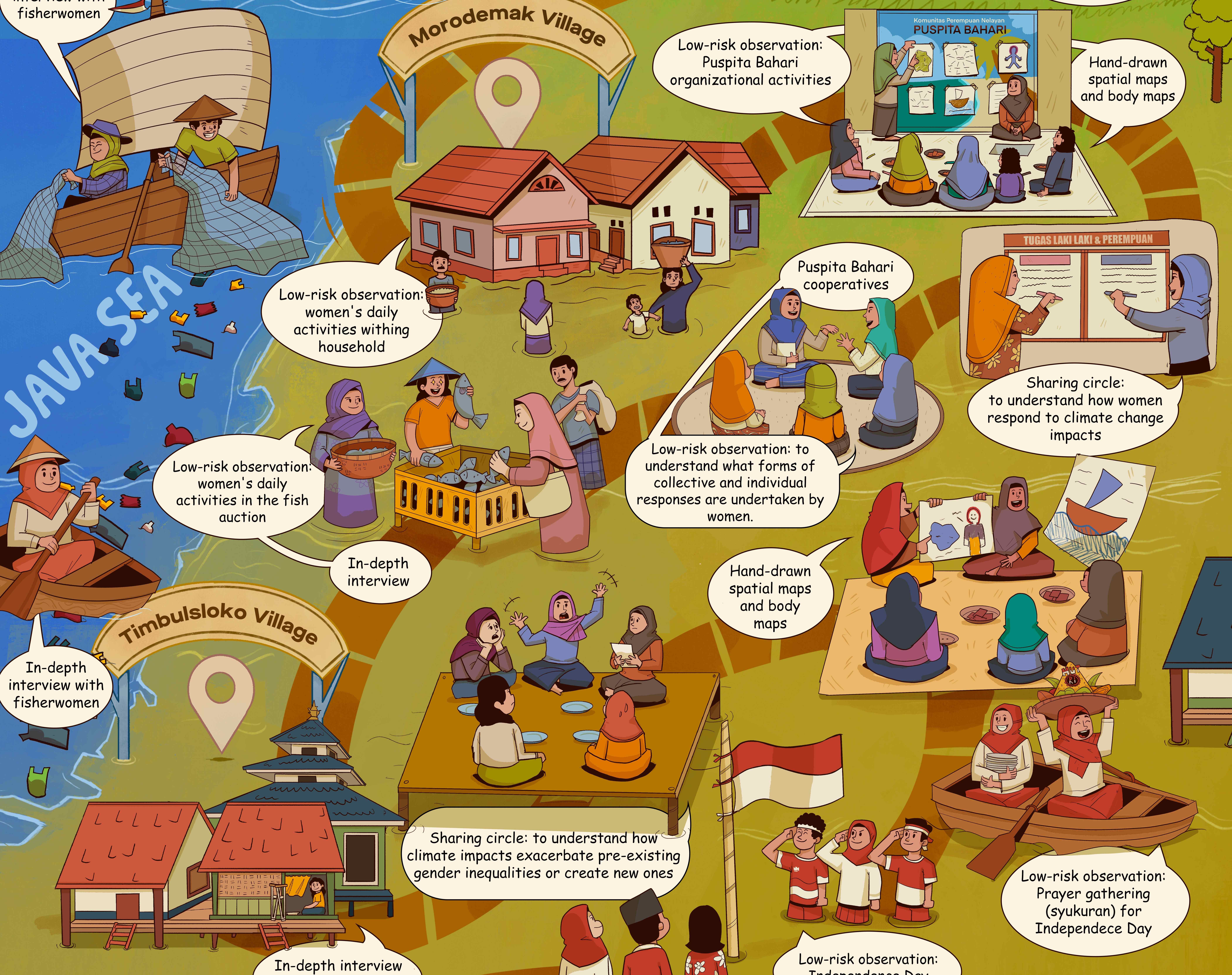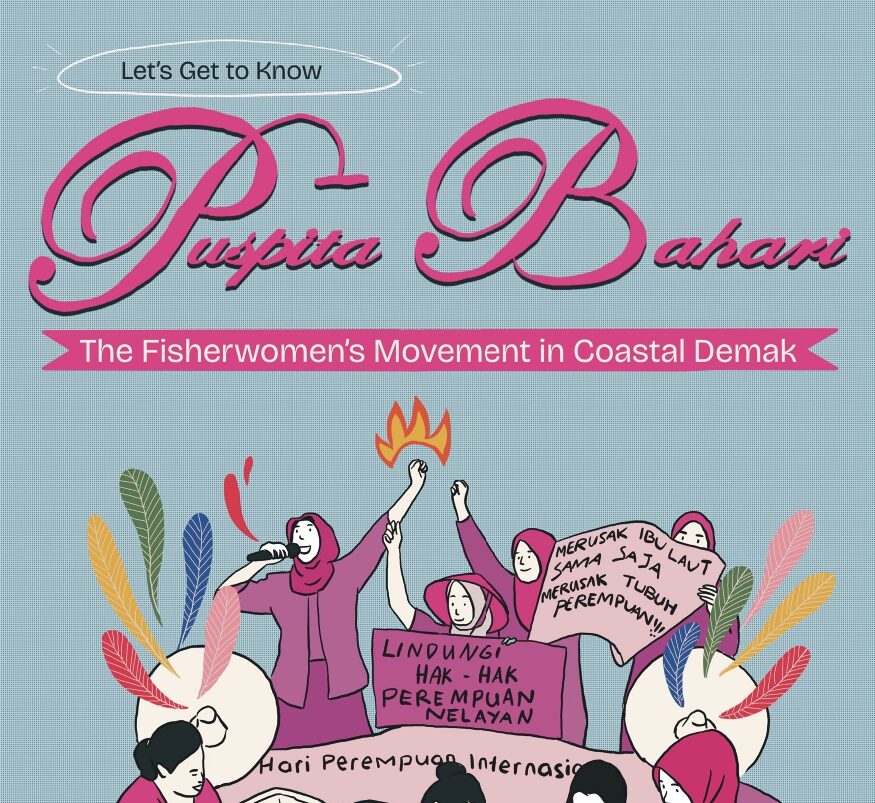
In July 2022, Muhammad Budi Zakia Sani and Syahril, two leading Banjarese Pamadihinan, led a Madihin performance on the riverside in Banjarmasin, a city in South Kalimantan.
Madihin was recognised by UNESCO as a form of Intangible Cultural Heritage in 2014. It is a spontaneous musical monologue repartee in the Banjar language by one or more Pamadihinan (musicians) in traditional dress, who use a drumming instrument called a tarbang. It is witty and fast-paced as the musicians perform by responding to each other, making observations about each other and those around them. The lyrics are often sarcastic, contain social messages, and at the same time make people laugh. Pamadihinan also use tone, pitch, and facial and bodily expressions to create humour and at the end of their performance they will often (jokingly) apologise to the audience in case their performance has offended them.
In this performance, perched on chairs on a wooden jembatan (bridge) extending over one of Banjarmasin’s fabled 1,000 rivers, the two Pamadihinan performed a Madihin they composed in response to transcripts from GENERATE’s fieldwork across the city. It spotlights the everyday experiences of riverside women who live around the Kuin Estuary.
The Madihin highlights a tapestry of local and global forces at work in the everyday lives of working-class women living on Banjarmasin’s riverside. Through humour it explores and highlights the diverse ways in which climate change in affecting different women.
Across the week before this riverside performance, Zakia Sani collaborated with GENERATE to co-lead a series of community Madihin workshops. Bringing together informal workers, women, older people and people with diffabilities, Zakia taught participants how to drum, the different Madihin rhythms, and how to create the couplets to end and begin on the same rhyming word.
Madihin, the Banjar language, and local dialect, and a popular local form of oral storytelling, was chosen in order to subvert the emphasis on ‘expert’ knowledge when discussing climate change. We instead aimed to focus on experiential and lived knowledge. This allowed our climate change discussions to open according to local vernacular and logics and offered people a tool through which they could share their stories in an entertaining way, bringing participants, researchers, and musicians together to release sadness while simultaneously laughing together.
Humour and laughter not only shaped the emerging stories but were deeply generative and embodied. Humour became (and is) a key coping mechanism and way of challenging a perceived lack of agency. Madihin, a form of oral storytelling, resists the domination of text in knowledge production about climate change. It foregrounds the local values, identities, and priorities that bring people together and shape their resilience to crisis. Our creative Madihin workshops created a safe space for making visible systemic social, climate, and broader tensions and injustices.
These Madihin videos invite us to confront contested notions of agency, power, and inclusion typically obscured in climate research, and shifts our focus from the narratives of ‘experts’ and ‘decision-makers’ to consider the (mostly devalued) everyday labour of people who must adapt and carry each other along.

(Text shared here is borrowed from our 2023 article: ‘Hanya ada Satu Kata: Lawan! On decolonising and building a mutual collaborative research practice on gender and climate change, Gender & Development, 31:2-3’.)



